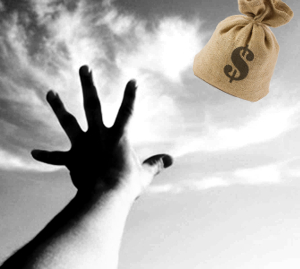Multinational cash-grab stops short
 Mining companies have avoided becoming targets of the Federal Government's efforts to reclaim lost tax.
Mining companies have avoided becoming targets of the Federal Government's efforts to reclaim lost tax.
Federal treasurer Joe Hockey said there would be plans in this week's budget to crack down on profit shifting measures of multinational companies.
But now that the papers are out, it appears this pledge has disappeared.
Of the three quarters of a million companies operating in Australia, Joe Hockey’s new Multinational Anti-Avoidance Law targets just 30 foreign tech companies - and it is unclear how even these firms will be made to pay.
“As you address the various legislative gateways in the new rules you are confronted by a series of vague and untested concepts,” commercial lawyers Clayton Utz noted in a Budget response.
“These build on each other, so by the end of the interpretative process taxpayers will inevitably face considerable uncertainty as to whether the law applies in their particular circumstances.”
Reports say the attempts to stop rampant profit-shifting have simply caused company finance directors to revaluate.
“When you revalue the assets, you then get the benefit of the leverage ratio,” deputy commissioner Mark Konza told the Senate inquiry into corporate tax avoidance.
“We have identified a substantial revaluation of assets occurring in large corporates.”
The only real effort to get more money from multinationals comes in the form of GST on digital downloads, with hopes to gain a modest $350 million over four years.
But foreign tech companies have been given sole responsibility for gathering and reporting the GST payable on Australian sales, leaving the Tax Office to trust the companies to pay what they owe.
The Federal Government is probably hoping there are no accounting mix-ups, which it would have no way to verify.
As if to show why stronger measures are needed, drug giant Pfizer filed its company accounts this week.
The documents reveal that one of the most prolific multinationals last year forked out a mere $1.5 million in income tax, despite operating cash-flows of $1.4 billion in Australia.
It was an unsatisfying effort from the makers of Viagra, especially considering the large PBS (Pharmaceutical Benefits Scheme) subsidies from Australian taxpayers.
Australia’s major miners recently fronted a Senate Inquiry into Corporate Tax Avoidance, where they revealed the extent of commodity profit-shifting practices undertaken through offices in Singapore.
At the hearing, some firms appeared to be selling their own product to themselves to minimise their Australian profits and payable tax.
Government investigations have found that BHP and Rio Tinto in particular sell their iron to ‘marketing’ companies in Singapore, so they can revalue for sale to customers in Asia.
By moving its profits to Singapore and paying a lower tax rate there, BHP has been shown to have an effective tax rate of just 0.002 per cent.
In the same inquiry, the ATO revealed that it is seeking unpaid tax from BHP of $301 million, interest of $145 million, and penalties of $76 million.
Similarly, Rio Tinto Australia told the hearing that Rio Tinto pays taxed at a rate of just five per cent in Singapore.
It is unclear whether the ATO is targeting Rio Tinto as well.








 Print
Print